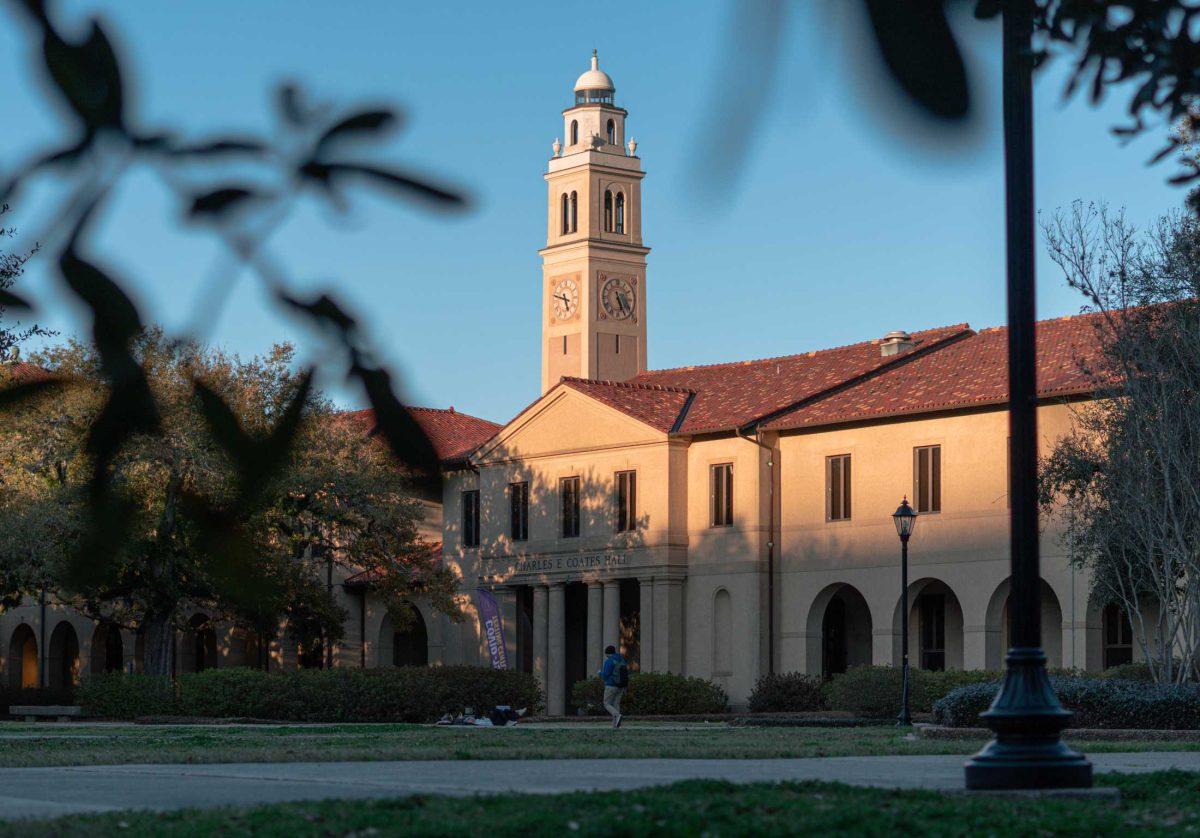The U.S. Department of Education launched two investigations into LSU’s handling of sexual assault cases. The first investigation, announced Feb. 2, will look into possible violations of the Clery Act. The second investigation is being conducted by the Office of Civil Rights. It was announced March 3 and will examine Title IX compliance at LSU over the past three years.
In a letter issued to Interim President Thomas Galligan on Feb. 2, the Department of Education said it would conduct an investigation into LSU’s transparency in reporting crimes and sexual violence that occur on campus. LSU officials must provide an “audit trail” showing all incidents of crime from 2016 through 2019, among other documents, for the first investigation.
The first investigation will determine if LSU was transparent with its stakeholders regarding crime reporting and other acts of abuse that occurred on campus.
It will focus on LSU Athletics and Greek Life and determine if the University violated the Clery Act, a federal statute requiring colleges and universities participating in federal financial aid programs to disclose campus crime statistics and security information. The Clery Act is intended to protect students by forcing schools to be transparent about campus crime in order to maintain federal funding.
The University could be at risk of losing Title IV funding if it does not comply with the investigation, or if the investigation determines LSU violated the Clery Act. Title IV affects federal financial aid for students that is distributed by the University.
“LSU administers all Title IV federal programs which are based on a student’s demonstrated financial needs,” according to LSU’s website.
There are close to 13,000 LSU students who received some form of federal financial aid for the 2019-2020 school year, according to data collected by the University. A little less than half of these students received financial aid in the form of Pell Grants.
President of Safety Advisors for Educational (SAFE) Campuses S. Daniel Carter told the Reveille that a university has never had its federal financial aid affected due to a Clery Act violation.
SAFE Campuses is a national social entrepreneurship organization that works with institutions to improve their Title IX procedures.
“The closest that has happened was when Michigan State put on a form of strict oversight for handling their financial aid after their Clery Act investigation, but no institution has actually had their aid limited, suspended or eliminated,” Carter said.
The second investigation will examine Title IX cases over the past three academic years and will be conducted similarly to Husch Blackwell’s investigation. The Department of Education will interview students, staff and administration, then release a final report that will summarize the University’s handling of Title IX cases. In addition to Title IV funding being pulled, LSU will be fined $59,017 for each instance of abuse that went unreported, per the Clery Act’s current standards.
Junior Vice President of Legal Affairs for LSU Winston DeCuir spoke at a Senate Select Committee on Women and Children hearing April 8 and said LSU expects the Department of Education investigations to be completed within 12 months. DeCuir said LSU has submitted the first and second rounds of information to the department in compliance with the investigation.
Carter said the investigation could take longer than a year based on past investigations.
“I don’t envision that any review in the scope of that announcement letter can be resolved by the department in less than a year,” Carter said.
Carter said a “multi-million dollar fine” is possible as a result of this investigation, based on how many instances of abuse went unreported as revealed in the Husch Blackwell report.
The University released a statement on Feb. 5 in response to the Department of Education’s Clery Act investigation.
“LSU was notified that the U.S. Department of Education would be conducting a campus crime program review related to Clery Act requirements. Campus safety and the wellbeing of those at LSU is always our priority, and following Clery guidelines for reporting and notifying the campus community is an important part of crime prevention that we take extremely seriously,” the statement read.
One alumna who was sexually assaulted during her undergraduate career and went through the Title IX process at LSU spoke to Husch Blackwell representatives and was then contacted by the Department of Education for an interview.
She said that during the interview, the Husch Blackwell lawyers stopped short of saying complicit LSU officials should be fired, but that the Department of Education investigators said, “people are going to get fired. If Husch-Blackwell doesn’t, we’re going to make [LSU]. We’re not playing around here.’”
The alumna also said the Department of Education investigators told her, “this isn’t just about Title IX, this is about a lot of civil rights violations at LSU.”
Pre-law international affairs and policies junior Sam Ghelli said she thinks the University deserves to lose federal funding as a consequence for its negligence.
“Personally, I think LSU should lose funding,” Ghelli said. “They should have consequences to their actions just as they punish their students for wrongdoings. If I am going to be held accountable for the LSU Code of Conduct, then so should they. The only way anything will ever change is if it’s out of their pockets.”
Ghelli said the University should face more consequences for its lack of leadership.
“LSU Cares is genuinely the biggest oxymoron known to date,” Ghelli said. “They don’t care about their students, they care about looking good for the press when they knock on their door demanding answers to the blatant disregard of their students.”
Ghelli believes LSU has the wrong priorities set. She said she would like to see the University place the wellbeing of its students ahead of making money.
“LSU would rather see dozens of their students be traumatized and assaulted than hold the perpetrators accountable because we are only dollar signs in their eyes,” Ghelli said. “Unless you are a male athlete making the University money every week on the field, you might as well be rubbish in the gutter.”
She thinks LSU’s response to such incidents doesn’t fix the issue because of the lack of accountability and action being taken.
“The performative activism we see LSU broadcast to the media is a slap in the face to all of the victims that have been hurt by the directions of LSU’s administration’s handlings of this ordeal,” Ghelli said.
Political science junior Asia George-Huff said she transferred to LSU in January 2020, and the allegations of sexual misconduct on campus made her feel “apprehensive.”
“If I wasn’t so close to graduating or had a child, I would probably transfer because I feel like LSU has done so poorly on addressing many social issues from Black Lives Matter to sexual assault allegations that are even beyond just the football team,” George-Huff said.
She said she’s concerned to stay on campus for safety reasons due to multiple reports of LSU officials failing to address violence and crime on campus. As a female at LSU, she said she has to take extra precautions to ensure her safety and wellbeing.
“I have never lived on campus, but I’m exploring options now for the upcoming year and it’s definitely concerning with a newborn child,” George-Huff said. “Just being a female out of state, just to have something else to worry about, and then to not even be taken seriously.”
While she thinks officials at LSU should be held accountable, she doesn’t think that federal funding should be cut for the University.
“Cutting federal funding would only hurt the students more versus holding the individuals responsible who were the leaders in charge,” she said.
The Department of Education has investigated and fined other universities for Title IX issues, including fining Michigan State University $4.5 million in 2019 for failing to properly report sexual assault cases, according to NPR.
The Department of Education investigated LSU for an alleged violation of Title IX in 2015, according to the Reveille Archives. In this investigation, the Department of Education received a formal complaint of discrimination from a student who claimed that LSU discriminated against her based on her gender.
Henry Weldon also contributed to this report.










